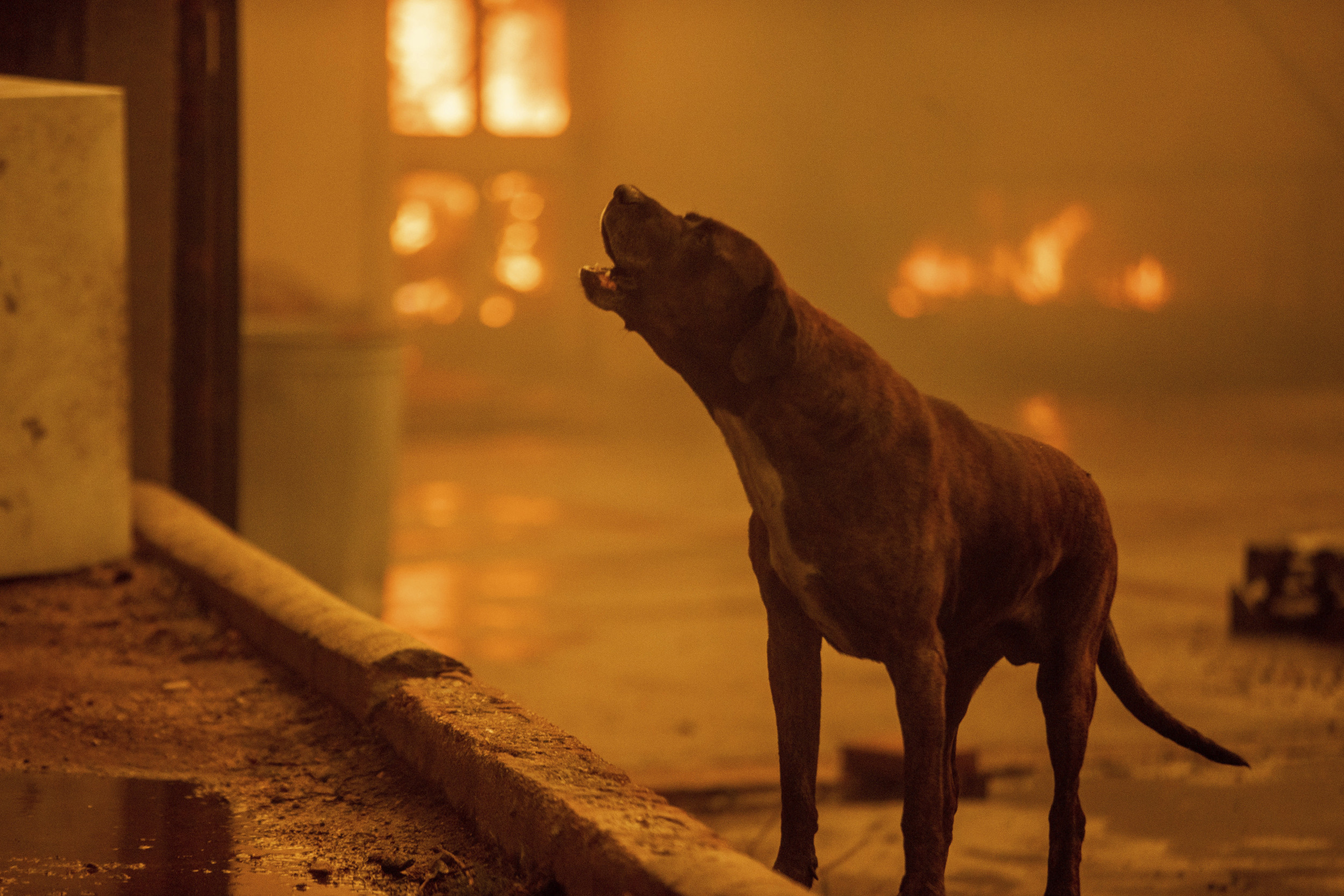A German Christmas tradition of hitting women's bottoms with a bull horn after chasing them through the streets has been banned after a documentary highlighted complaints of brutality.
Footage shows severe and humiliating smacking of women in public, watched by groups of males.
As part of the bizarre tradition on the island of Borkum, Lower Saxony, six men dress up as monsters in woolly costumes to hunt the women, before holding them and subjecting them to the bull horn beatings. They are aided by a Wiefke, who is a man dressed in a milkmaid's costume.
The rituals are enacted by the Verein Borkumer Jungens e.V. 1830 association (Borkum Lads Club) at the annual festival of Klaashom on December 5, which was investigated in a 30-minute documentary by YouTube news outlet STRG_F.
One woman in the documentary said she was left with hematomas and bruises, after an incident during Klaashom.
Another woman called the tradition "oppressive, shameful, and overwhelming" and speaking of a past incident, said, "I really cried and at the same time, I was angry at myself because I asked why I went with them, why did I listen to others and not to my instincts? And then I cursed them all."
After reviewing the footage, the club has now said it will ban any violence against women from the annual festival.
Newsweek has asked the Borkumer Jungens e.V. 1830 association for comment via email.

The festival is apparently tied to traditions from the 17th and 18th century fishing seasons, in which fishermen would return from their time at sea to run around the island to reclaim it from the women.
Reactions to the documentary were mixed.
Christine Arbogast, a Lower Saxony state secretary in the ministry of social affairs, said it was important that "anyone who wants to be spanked with a horn is allowed to do so," but that those that don't "must be respected," according to the Telegraph, and the island's mayor questioned the validity of the documentary's findings, calling it "dubious."
German national newspaper Die Zeit quoted another Lower Saxony minister, Daniela Behrens, who condemned the tradition and said: "Customs and traditions must never be a justification for violence against women. The reporting on the Klaasohm festival on Borkum shows that not all of the women affected agreed with this violent custom and that it was not easy for them to articulate this."
The festivities have been organized since the 1830s by the Borkum Lads Club, which has now apologized for its actions and distanced itself from violence against women.
In a statement it said: "We expressly distance ourselves from any form of violence against women and apologize for the historically grown actions of past years. We cannot deny that this was an aspect of the festival in the past. However, this part of the tradition has never been the core of the festival but was merely a minimal component that has hardly been carried out at all in recent years.
"The fact that this unfortunately does happen in isolated cases, as can be seen in the report, is something the VBJ is aware of its responsibility and will consistently prohibit it in the future. The association will completely abolish the custom of 'hitting.' We as a community have clearly decided to leave this aspect of tradition behind and focus on what the festival really means: the solidarity of the islanders."
State parliament member, Meta Janssen-Kucz applauded proposals in the statement and specified that other parts of the festivities will continue. She said: "This clear 'no' to violence against women was long overdue. Where violence is still part of customs, people must take action against it. Especially if violence is no longer used in the future."
The island's mayor, Jürgen Akkermann, said: "We understand that not every outsider can understand this tradition. When criticizing, it is also important to recognize that the changes that the festival has undergone and is currently undergoing are not ignored. Violence must not play a role and that is exactly what we want to make clear."
Ahead of the celebrations, local police also released a statement that they would increase the number of officers present and prevent crime.
Not all women are opposed to the festive practice, as approximately 150 to 200 women protested for the preservation of the custom, walking through the streets blowing into cow horns.


.png)

















 English (US) ·
English (US) ·